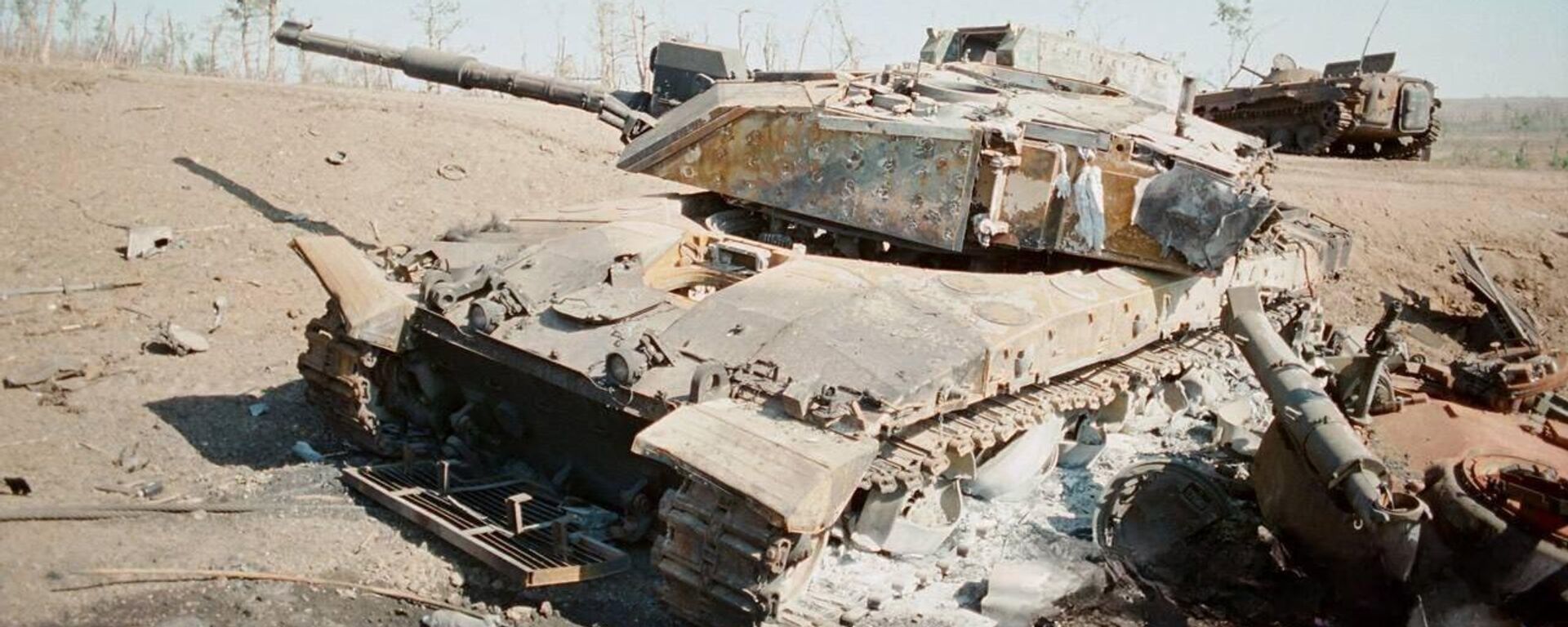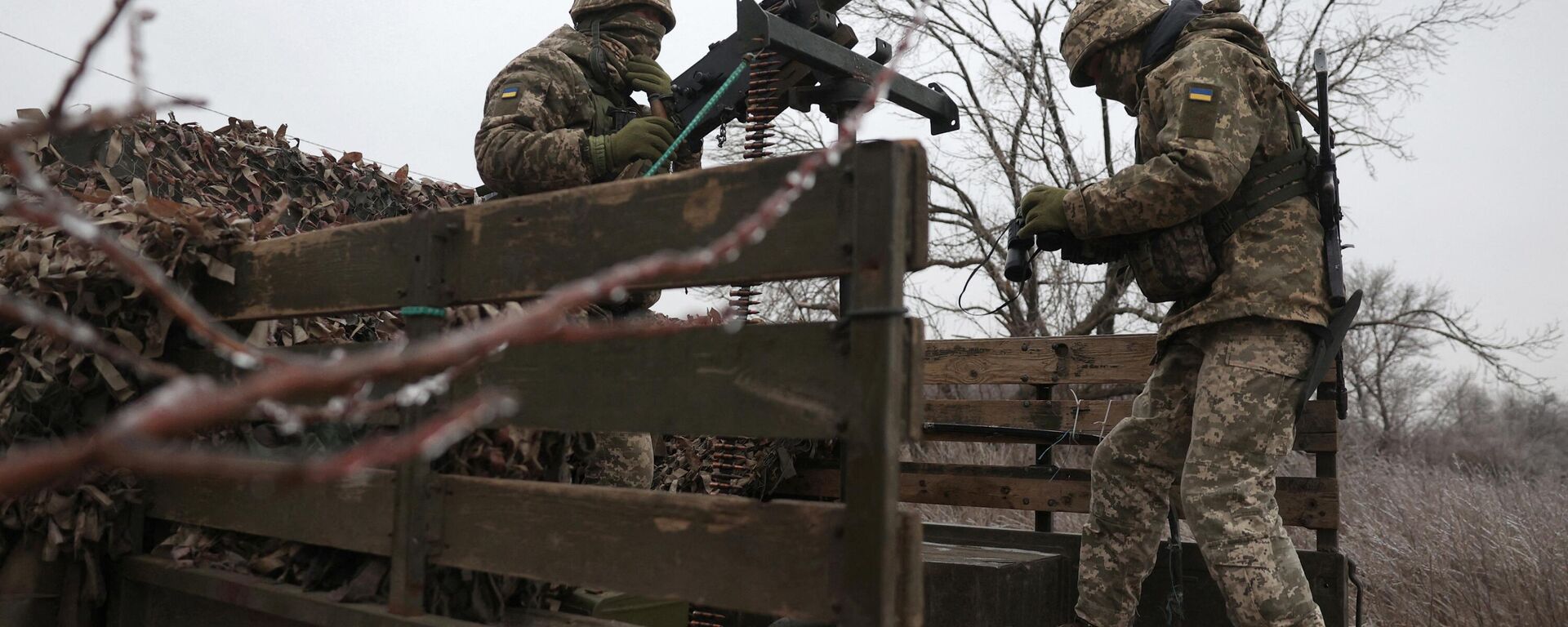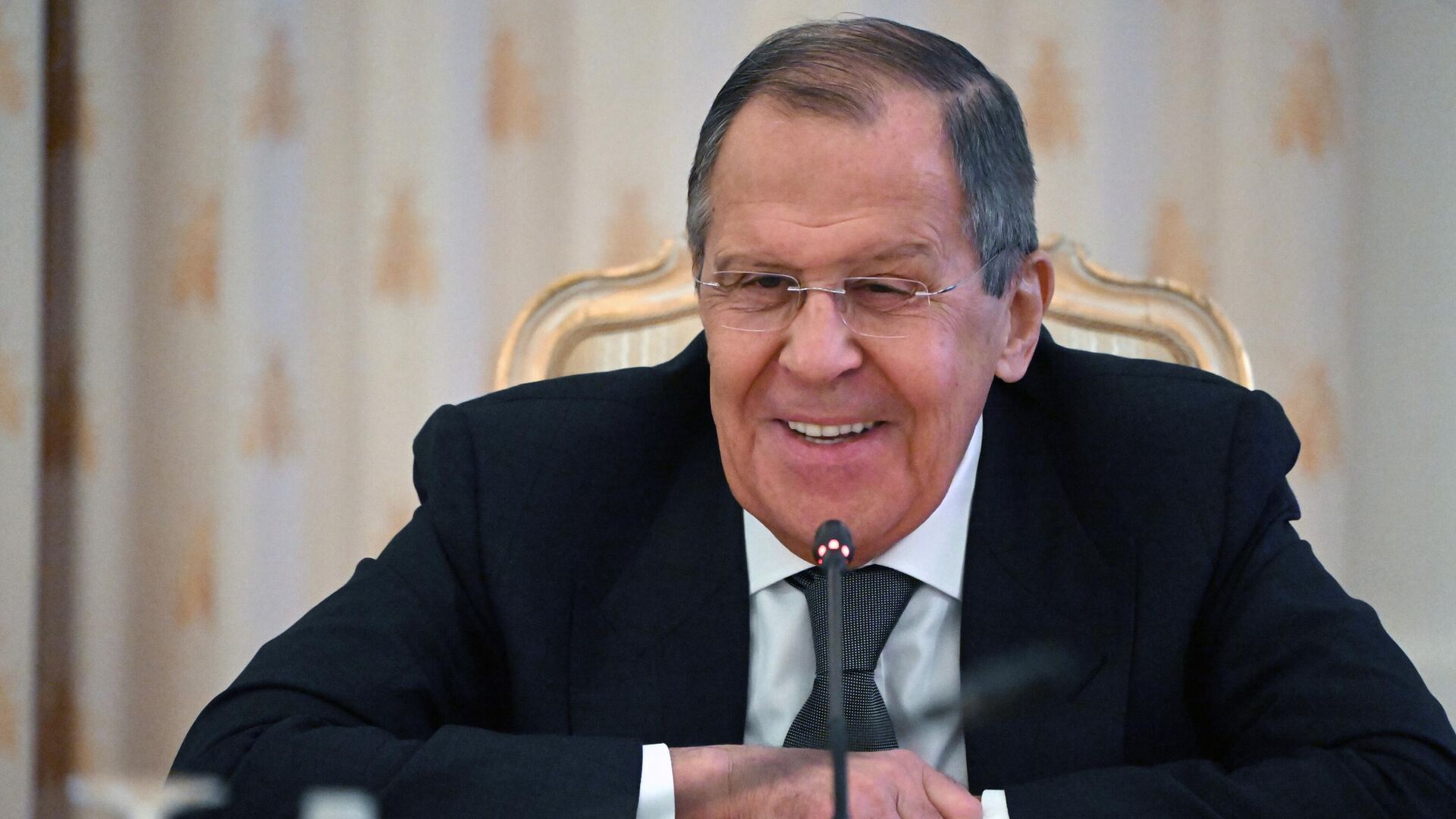https://sputnikglobe.com/20240110/lavrov-knew-contents-of-secret-ukraine-meeting-weeks-before-bloomberg-report-1116097234.html
Lavrov Knew Contents of 'Secret' Ukraine Meeting Weeks Before Bloomberg Report
Lavrov Knew Contents of 'Secret' Ukraine Meeting Weeks Before Bloomberg Report
Sputnik International
Bloomberg reported Tuesday on a “secret meeting” held in mid-December between officials from Ukraine, the G7 and a small group of non-Western countries to try to ram through Kiev’s terms for peace talks with Moscow. Russia was not invited to the meeting, but ended up being informed about it anyway.
2024-01-10T12:05+0000
2024-01-10T12:05+0000
2024-01-10T12:40+0000
world
volodymyr zelensky
sergey lavrov
maria zakharova
russia
ukraine
kiev
g7
bloomberg
nato
https://cdn1.img.sputnikglobe.com/img/07e7/02/02/1106929215_0:0:3072:1728_1920x0_80_0_0_f20685e42d24cd7e63f145739e64aef5.jpg
Russian Foreign Minister Sergey Lavrov spilled the beans on the much-touted “secret meeting” of Ukrainian, Western, and Global South countries’ national security advisors in Riyadh on December 16 weeks before Bloomberg’s report on the gathering, telling Rossiya Segodnya chief Dmitry Kiselev about it on December 28.“But you know about it,” Kisilev interjected.Commenting on Bloomberg’s report and the absurdity of organizing "peace talks" aimed at resolving the Ukraine crisis without inviting Moscow to the table, Russian Foreign Ministry spokeswoman Maria Zakharova told Radio Sputnik on Wednesday that the “secret meeting” had less to do with ending the conflict, and more to do with pumping up Mr. Zelensky’s ego.“This is a well-worn concept of attracting political attention specifically to the Zelensky regime. This is PR for the Zelensky regime. Speaking in terms used in political science, [the talks] were about maintaining a sense of constant activity in the information and political space, at the center of which is Zelensky,” Zakharova stressed. “This has nothing to do with resolving the Ukrainian crisis. These are two completely different topics.”In fact, the spokeswoman suggested, holding “peace talks” without Russia, and on maximalist terms which Russia would never accept only serves to weaken the possibility of peace actually being reached.What is ‘Zelensky’s Peace Formula’?Zelensky’s NATO sponsors have since held a series of "peace talks" based on these demands without inviting Russia, aimed, it would seem, at getting Global South countries to join the West’s hybrid warfare economic and military pressure campaign against Moscow. Global South countries have refused, not only maintaining diplomatic and economic ties with Russia, but ramping up trade, and expanding West-alternative institutions in which Russia is a prominent member, most prominently via the BRICS bloc, which officially doubled its membership last year.In his December 28 interview, Lavrov said that although Moscow was initially anxious about Global South nations’ attendance of the gatherings, it eventually came to the understanding that their decision to take part didn’t carry an anti-Russian character.The "peace formula" being pushed by Zelensky comes following multiple instances of Ukraine rejecting Russian overtures designed to restore peace to the region – starting with the 2015 Minsk Accords, which were aimed at ending the civil war that had broken out in the country’s east, and promised to reintegrate Donbass into Ukraine in exchange for federalization. Kiev dragged its feet in implementing the proposal, instead using Minsk to prepare for a wider war involving Russia (something former Ukrainian President Petro Poroshenko, former German Chancellor Angela Merkel, and former French President Francois Hollande have now all admitted).In the spring of 2022, just weeks into Russia’s special military operation, Moscow and Kiev held a series of talks in Belarus and Turkiye aimed at resolving the crisis – hammering out a draft peace agreement including a commitment by Kiev to reject NATO membership, reduce the size of its armed forces, and accept Crimea and the Donbass’s status as a part of Russia in exchange for peace guarantees and other concessions. Ukrainian authorities rejected the peace deal, ostensibly on orders from Kiev’s NATO sponsors, as part of the US-led proxy war thinking aimed at “weakening Russia.” Last summer, at the height of Kiev’s blood-soaked counteroffensive, President Vladimir Putin lamented that Kiev, at the behest of its foreign masters, had thrown a viable peace deal “into the dustbin of history.”In the nearly two years since, Ukraine has suffered staggering casualties on the battlefield and socio-economic collapse at home, with Russian Defense Minister Sergei Shoigu reporting on Tuesday that Ukraine’s Armed Forces had lost over 215,000 troops in 2023 alone.
https://sputnikglobe.com/20240107/french-historian-predicts-imminent-nato-defeat-in-ukraine-russia-europe-reconciliation-1116033585.html
https://sputnikglobe.com/20240109/ukraine-faces-anti-aircraft-missile-deficit-amid-russias-high-precision-strikes-1116074863.html
russia
ukraine
kiev
Sputnik International
feedback@sputniknews.com
+74956456601
MIA „Rossiya Segodnya“
2024
News
en_EN
Sputnik International
feedback@sputniknews.com
+74956456601
MIA „Rossiya Segodnya“
Sputnik International
feedback@sputniknews.com
+74956456601
MIA „Rossiya Segodnya“
how did russia learn about ukraine's secret meeting with g7, what is the zelensky peace formula
how did russia learn about ukraine's secret meeting with g7, what is the zelensky peace formula
Lavrov Knew Contents of 'Secret' Ukraine Meeting Weeks Before Bloomberg Report
12:05 GMT 10.01.2024 (Updated: 12:40 GMT 10.01.2024) Bloomberg reported Tuesday on a “secret meeting” held in mid-December between officials from Ukraine, the G7, and a small group of non-Western countries to try to ram through Kiev’s terms for peace talks with Moscow. Russia was not invited to the meeting, but ended up being informed about it anyway.
Russian Foreign Minister Sergey Lavrov spilled the beans on the much-touted “secret meeting” of Ukrainian, Western, and Global South countries’ national security advisors in Riyadh on December 16 weeks before
Bloomberg’s report on the gathering,
telling Rossiya Segodnya chief Dmitry Kiselev about it on December 28.
“Considering our good relations [with Global South countries, ed.], I can say that another meeting like this took place 10 days ago – the G7 plus the leading developing nations. Not all countries from the world majority attended. Some turned down their invitations. The meeting took place in complete secrecy. Nothing was reported about it; there were no leaks,” Lavrov said at the time.
“But you know about it,” Kisilev interjected.
“Yes, we do. Our close allies and associates who attended that meeting did not promise to keep an issue that concerns Russia secret from us. Another meeting is scheduled to take place in January 2024 and a ‘peace summit,’ where [Ukrainian President Volodymyr] Zelensky’s 'peace formula,' is to be approved in February 2024,” Lavrov said.
Commenting on
Bloomberg’s report and the absurdity of organizing "peace talks" aimed at resolving the Ukraine crisis without inviting Moscow to the table, Russian Foreign Ministry spokeswoman
Maria Zakharova told Radio Sputnik on Wednesday that the “secret meeting” had less to do with ending the conflict, and more to do with pumping up Mr. Zelensky’s ego.
“This is a well-worn concept of attracting political attention specifically to the Zelensky regime. This is PR for the Zelensky regime. Speaking in terms used in political science, [the talks] were about maintaining a sense of constant activity in the information and political space, at the center of which is Zelensky,” Zakharova stressed. “This has nothing to do with resolving the Ukrainian crisis. These are two completely different topics.”
In fact, the spokeswoman suggested, holding “peace talks” without Russia, and on maximalist terms which Russia would never accept only serves to weaken the possibility of peace actually being reached.
“Because resolving the situation in Ukraine is, of course, painstaking work. This is work on the political and diplomatic track. This is negotiations, contacts and so on. This is not about the fate of one person, 10 people or their commercial, financial and economic interests, but about the fate of peoples and nations. That’s if we’re talking about the situation in Ukraine and a real resolution [to the crisis]. The PR around Zelensky, his so-called peace initiatives, his endless statements, appearances at various places and platforms – all this hype is created precisely to maintain the illusion of some kind of political activity while diverting the world’s attention from real processes of a possible settlement,” Zakharova said.

7 January 2024, 15:39 GMT
What is ‘Zelensky’s Peace Formula’?
President Zelensky rolled out his so-called "peace formula" in late 2022, with the proposal including 10 points, such as demands that Russia give up Crimea and Donbass, pay Ukraine reparations, subject officials and military personnel to war tribunals, and provide security guarantees buying Kiev time for its NATO accession bid. Essentially, the "peace formula" boils down to demands for total Russian capitulation. Russia, predictably, hasn't taken kindly to the document's proposals, with Lavrov calling it little more than a "figment of a sick imagination."
Zelensky’s NATO sponsors have since held a series of "peace talks" based on these demands without inviting Russia, aimed, it would seem, at getting Global South countries to join the West’s hybrid warfare economic and military pressure campaign against Moscow. Global South countries have refused, not only maintaining diplomatic and economic ties with Russia, but ramping up trade, and expanding West-alternative institutions in which Russia is a prominent member, most prominently via the BRICS bloc, which officially doubled its membership last year.
“No major progress” was made at last month’s secret meeting on Ukraine, which was held in Riyadh, people familiar with the session told Bloomberg, with Kiev and G7 rejecting recommendations by officials from Global South countries to try to engage Russia directly. Among the non-Western countries in attendance were India, Saudi Arabia, and Turkiye, according to the report. However, China, Brazil, and the UAE – which had attended previous meetings of the kind, didn’t show up this time.
In his December 28 interview, Lavrov said that although Moscow was initially anxious about Global South nations’ attendance of the gatherings, it eventually came to the understanding that their decision to take part didn’t carry an anti-Russian character.
“When developing nations started attending these meetings, we asked them why they needed to do this. Don’t they understand that these meetings were pointless at best? They replied that they understand everything. These statements were made by countries from the world majority, which were invited to attend. But they were pursuing two things: first, they wanted to hear what [Ukraine and the West] had to say, and how serious a suggested settlement would be, and second, they wanted to explain that nothing good would come of it until talks were held with Russia’s participation,” Lavrov said.
The "peace formula" being pushed by Zelensky comes following multiple instances of Ukraine rejecting Russian overtures designed to restore peace to the region – starting with the
2015 Minsk Accords, which were aimed at ending the civil war that had broken out in the country’s east, and promised to reintegrate Donbass into Ukraine in exchange for federalization. Kiev dragged its feet in implementing the proposal, instead using Minsk to prepare for a wider war involving Russia (something former Ukrainian President Petro Poroshenko, former German Chancellor Angela Merkel, and former French President Francois Hollande
have now all admitted).
In the spring of 2022, just weeks into Russia’s special military operation, Moscow and Kiev held a series of talks in Belarus and Turkiye aimed at resolving the crisis – hammering out a draft peace agreement including a commitment by Kiev to reject NATO membership, reduce the size of its armed forces, and accept Crimea and the Donbass’s status as a part of Russia in exchange for peace guarantees and other concessions. Ukrainian authorities rejected the peace deal, ostensibly on orders from Kiev’s NATO sponsors, as part of the US-led proxy war thinking aimed at “weakening Russia.” Last summer, at the height of Kiev’s blood-soaked counteroffensive, President Vladimir Putin lamented that Kiev, at the behest of its foreign masters, had thrown a viable peace deal
“into the dustbin of history.”In the nearly two years since, Ukraine has suffered staggering casualties on the battlefield and socio-economic collapse at home, with Russian Defense Minister Sergei Shoigu reporting on Tuesday that Ukraine’s Armed Forces had lost
over 215,000 troops in 2023 alone.

9 January 2024, 13:25 GMT




